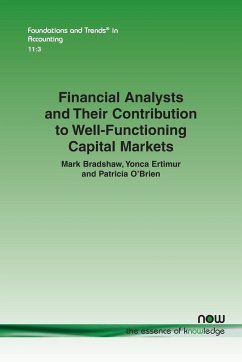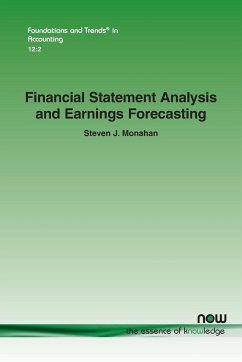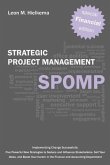Financial Analysts and Their Contribution to Well-Functioning Capital Markets views analysts in their role as key capital market intermediaries. The primary focus is on analysts' activities, the information that is important to them, who benefits from their activities, and how regulation and information technology have changed their environment in recent years. The authors question the restrictive focus on analysts' quantitative outputs that characterizes some prior research, and instead focus on the information environment, the constituents that analysts serve, and their contribution to well-functioning capital markets. Within this broader perspective, opportunities are identified to advance the academic literature on financial analysts' activities and contributions. Section 2 gives a recent historical overview of analysts' institutional setting. Section 3 discusses the basics of a career in sell-side research. Section 4 highlights the sources of information available to analysts. Sections 5 and 6 discuss the nature of the information analysts generate and how this information is useful to the capital markets, respectively. Section 7 critically assesses how research characterizes analysts' conflicts of interest. Section 8 discusses the pitfalls of using regulations as "natural experiments," as is common in accounting and finance research. Section 9 considers Reg FD as a case study of research inference. Section 10 briefly highlights evidence of analysts' value in capital markets and Section 11 concludes.
Hinweis: Dieser Artikel kann nur an eine deutsche Lieferadresse ausgeliefert werden.
Hinweis: Dieser Artikel kann nur an eine deutsche Lieferadresse ausgeliefert werden.








